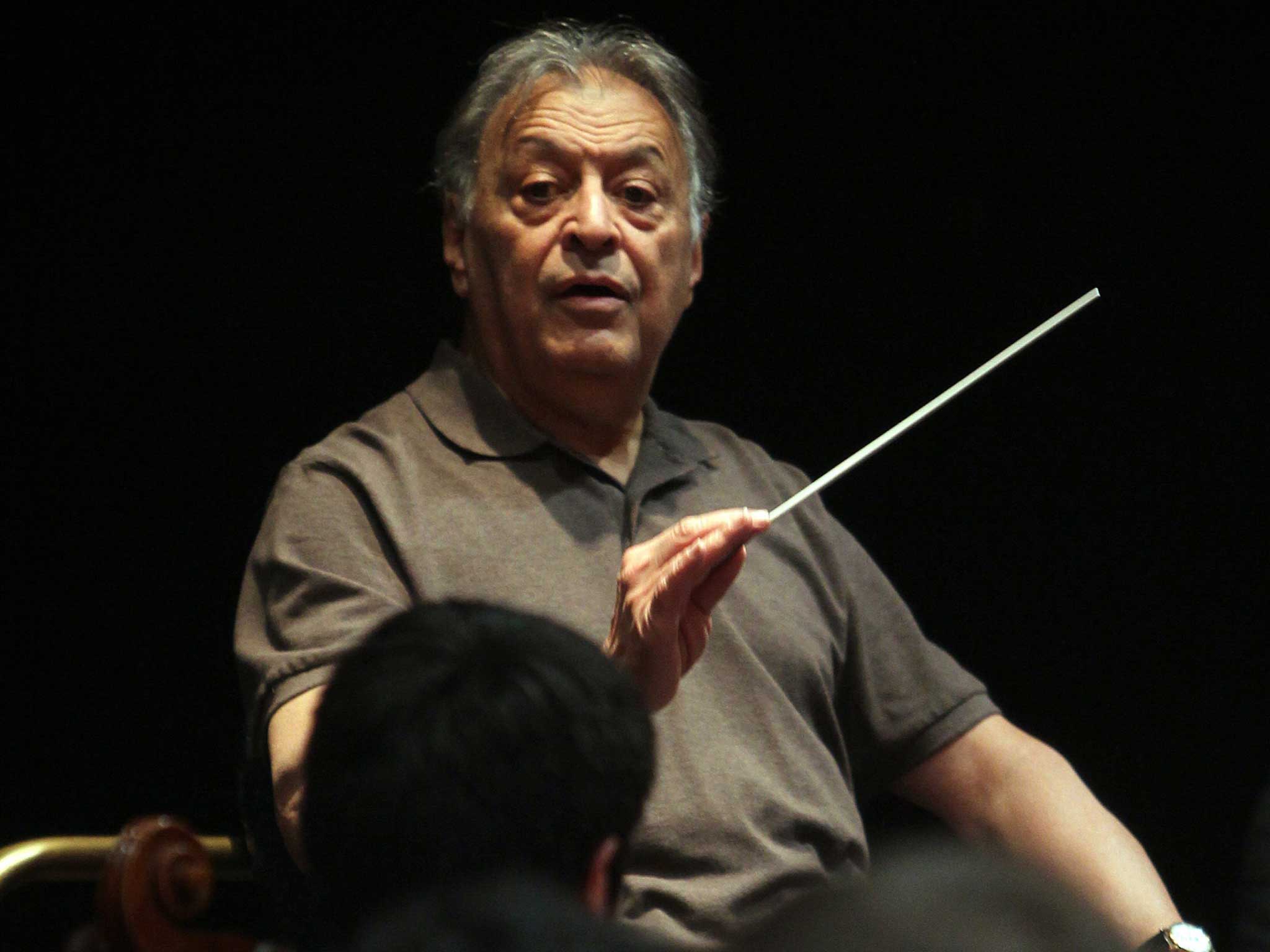Kashmir human rights activists call on conductor Zubin Mehta to call off concert over 'whitewash' fears

Activists in Kashmir are calling upon a celebrated conductor of classical music to call off a concert in Srinagar as they claim the event will be used to “whitewash” human rights abuses.
The Indian-born Zubin Mehta is due to conduct the Bavarian State Orchestra in a concert, Ehsaas-e-Kashmir, or Feelings for Kashmir, at the Mughal Gardens park in Kashmir’s summer capital on Saturday. It is the first such concert of its kind in Kashmir and has been organised by the Indian government and the German embassy.
“Music is a universal language. Music connects,” Germany’s ambassador, Michael Steiner, said when the concern was announced last month. “With the magic power of music, crossing geographical, political and cultural borders, we want to reach the hearts of Kashmiris with a message of hope and encouragement.”
He added: “This concert is for the people of Kashmir. Beethoven, Haydn and Tchaikovsky, played by a world acclaimed maestro and one of the best orchestras of the world in one of the most enchanting places in the world.”
Yet activists in Kashmir, a long-disputed region that has been rocked by waves of violence, say they do not want the concert to take place. They say they are not opposed to the orchestra, the conductor or the music, but they believe the Indian authorities will use the event to claim the situation is normal in the disputed area.
Syed Ali Shah Geelani, the veteran leader of Hurriyat Conference, a political organisation demanding independence for Kashmir, has called a shutdown in the Kashmir valley next Saturday.
“We are under occupation. The majority of people here are suffering from state terrorism – people are being killed,” Mr Geelani told The Independent. “People are suffering. There is no relevance for a music programme. India, with the help of the German government, is trying to say the situation should be forgotten."
Activists have organised an alternative musical event, the Truth about Kashmir, featuring poetry, folk music, rap, photography and art. Khuram Parvez, one of those opposed to the German concert and who has been involved in the alternative event, said: “We are saying the German government should not be doing this.”
Mr Khuram was among a number of activists, writers and academics who wrote to the German embassy in Delhi, asking them to call off the concert. A senior religious figure from Kashmir, Grand Mufti Basher-ud-Din, also said he thought the concert should not proceed
“Legitimising an occupation via a musical concert is completely unacceptable. Art as propaganda, as abundantly documented, was put to horrific use in Nazi Germany,” the letter sent to the embassy said. “We are sure you will understand that we cannot welcome anything even remotely analogous in Jammu and Kashmir.”
A spokesman for the German embassy in Delhi, Ravi Sharma, said on Monday that the concert was going ahead as planned.
The chief minister of Jammu and Kashmir, has said he believed the concert should go ahead. He said if people fighting for an independent Kashmir believed their cause would be damaged by the concert, then either “leadership is weak or the issue is weak”.
According to the Press Trust of India, Mr Abdullah told reporters in Srinagar: “Everyone has political views but music is in our culture. To present [music] as outside [the Kashmiri tradition] is not right.”
Mr Mehta, who was born in Mumbai, is associated with both the Israel Philharmonic Orchestra and the Valencia opera house. His links with Germany date from the early 1960s when, at the age of 25, he became the youngest conductor to direct the Berlin Philharmonic Orchestra. His programme is to feature the music of Beethoven, Haydn and Tchaikovsky.
Tens of thousands of people have been killed in Kashmir over the last 25 years as a result of separatist militancy, backed by Pakistan, and the subsequent security operation of the Indian authorities. Even today, with the level of violence having dropped sharply, the Kashmir valley is home to up to 700,000 troops and paramilitaries.
Subscribe to Independent Premium to bookmark this article
Want to bookmark your favourite articles and stories to read or reference later? Start your Independent Premium subscription today.

Join our commenting forum
Join thought-provoking conversations, follow other Independent readers and see their replies